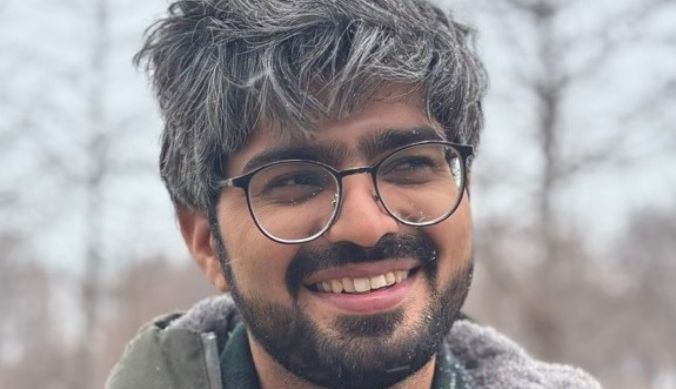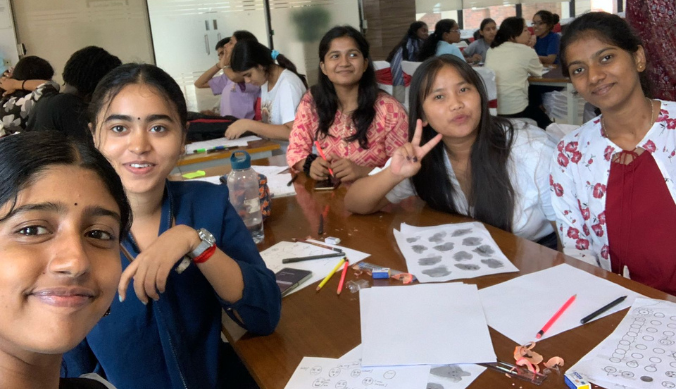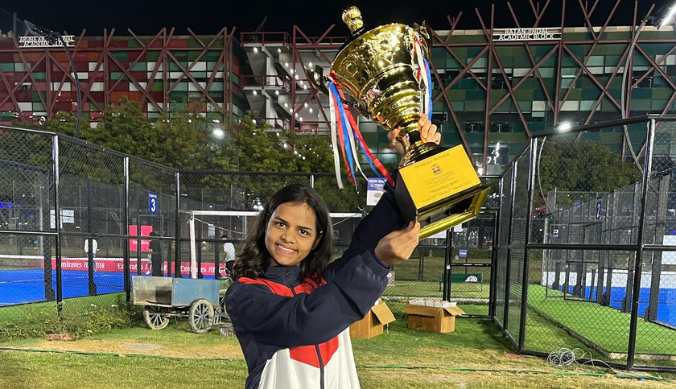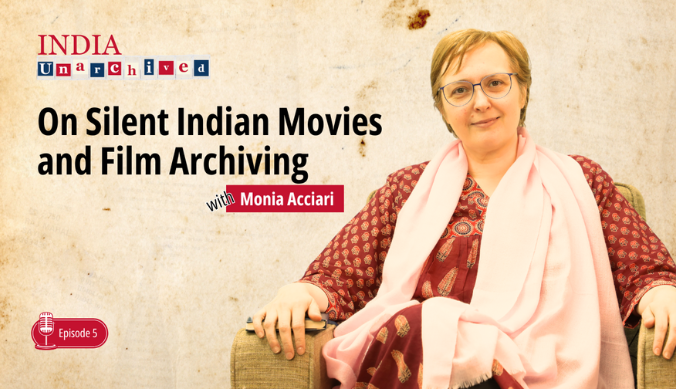Anjali Madangarli (ASP 24) Awarded the Prestigious Inlaks Scholarship to Pursue Master’s in Physics
Ashoka Physics Department commitment to creating a dynamic learning environment further deepened my appreciation for the subject.
I graduated from Ashoka University in 2024 with a Bachelor’s (Hons.) and a Postgraduate Diploma in Physics. During my time at Ashoka, I also completed two concentrations in Mathematics and Astronomy, and a capstone thesis in Inflation Cosmology. With the generous support of the Inlaks Shivdasani Foundation Scholarship, I will now be pursuing a Master’s in Physics, with a specialisation in Cosmology research, at Leiden University this fall.
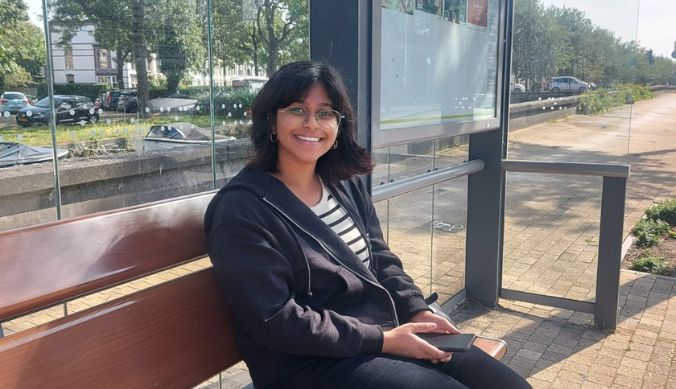
My interests predominantly lie in Mathematical Physics, Cosmology, and General Relativity. I enjoy studying complex theories that govern the universe and developing innovative theoretical models. Consequently, throughout my undergraduate education, I gravitated towards theoretical physics courses that enhanced my understanding of physical laws and the mathematical formalism required to describe them. Owing to my interests and background, I was motivated to apply for graduate studies in Physics, with a focus on Theoretical Cosmology.
The summer before I applied to graduate schools, I extensively researched different universities across the globe. The main factors that influenced my decision to apply to a particular institution included the relevant research being conducted there, the graduate courses offered, and possible funding opportunities. Based on the program I was applying for, I requested letters of recommendation from Professors who are researchers in the same field, to attest to my skills and motivation for pursuing the program. I also sought help from CWC, professors, and peers to review my statement of purpose and resume. Their diverse inputs and suggestions were crucial in helping me enhance my profile for graduate school. Lastly, after gaining admission to universities, I spoke with alumni and current students to better understand the opportunities and benefits offered by the institution. This allowed me to make a more informed decision regarding my ultimate choice for graduate school.
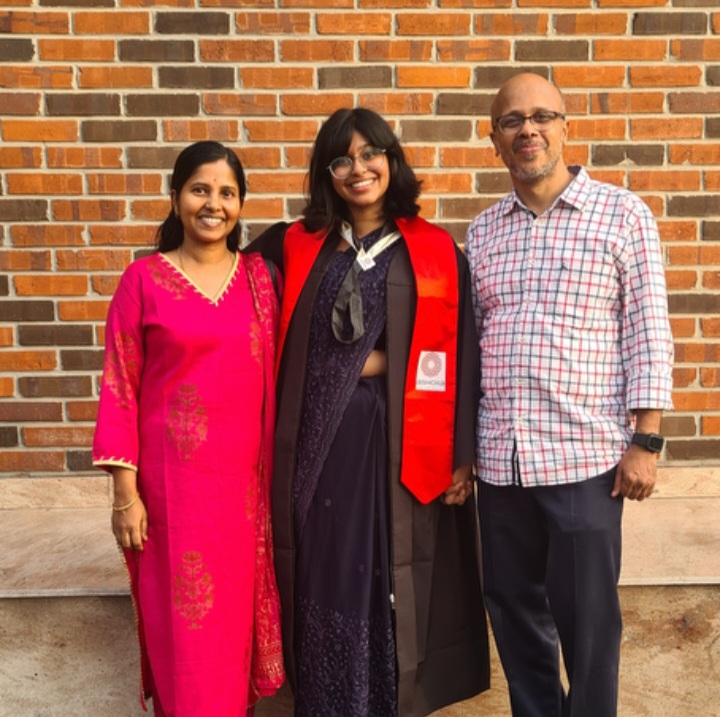
One of the first universities I was admitted to was Leiden University. The program is structured to balance equal emphasis on both research and graduate courses, ensuring that students develop a higher level of expertise in the chosen field. This gives students unparalleled access to renowned research spaces and the chance to study under the guidance of exceptional faculty. These were some of the factors that greatly influenced my decision to apply to, and eventually attend this program. However, considering the high tuition fee and cost of living in the Netherlands, I decided to apply for the Inlaks scholarship to support my graduate education endeavours. Due to the highly competitive nature of the scholarship and its prestigious legacy, I approached the application process with a certain cautious optimism, however, I was determined to give my best. After a gruelling technical round followed by a more holistic final interview, I was thrilled to learn that I had been selected as an Inlaks scholar. It was an unexpected honour and a perfect culmination of my undergraduate education.
My four years at Ashoka have been nothing short of remarkable. Academically, I have been motivated to perform to the best of my abilities every step of the way. Here, I was encouraged to pursue fields I had little to no experience in, opening up avenues of discussion and thought, unlike what I had previously experienced. I was also encouraged to think critically and creatively, to look at world challenges through an interdisciplinary lens rather than a narrow one, and to come up with universal solutions as a global citizen. Beyond academic pursuits, I also engaged in several extracurricular activities. I was part of the Ashoka Physics Society, dedicated to nurturing an interest in physics and astronomy amongst the Ashokan community. I also worked extensively with a student-led environmental protection and conservation organisation called the Millennials for Environment. For the past year, I served as a Resident Assistant, dedicated to developing a positive living environment conducive to academic and personal growth for about sixty residents in the residence halls. Lastly, I was also fortunate to be employed as a teaching assistant for two courses offered by the Physics Department, and this hands-on engagement with students was a natural extension of my passion for the subject. Such extracurricular engagements were crucial in helping me build a well-rounded profile, ensuring the development of essential skills beyond the classroom.
The Ashoka Physics Department has also been crucial to my academic development and success. Under the guidance of exceptional professors, I have had the opportunity to engage in research and independent projects. These experiences not only introduced me to research methodologies but also allowed me to delve deeply into specific topics beyond the confines of traditional classroom learning. The Department’s proactiveness is evident in the numerous colloquia and conferences organised throughout the year. These allow students to gain the necessary exposure to ongoing research topics and interact with distinguished Physicists from across the country. Their commitment to creating a dynamic learning environment further deepened my appreciation for the subject.
My achievements would not have been possible without the invaluable support I found at Ashoka. Here, I had the opportunity to study and grow under the guidance of exceptional mentors, immerse myself entirely in the study of my subject, and make the dearest of friends along the way. I am deeply grateful for the opportunities and experiences this institution has provided me, and it will always hold a special place in my heart.
Anjali (ASP 24) completed a Bachelor’s degree and a Postgraduate Diploma in Physics.
Study at Ashoka










